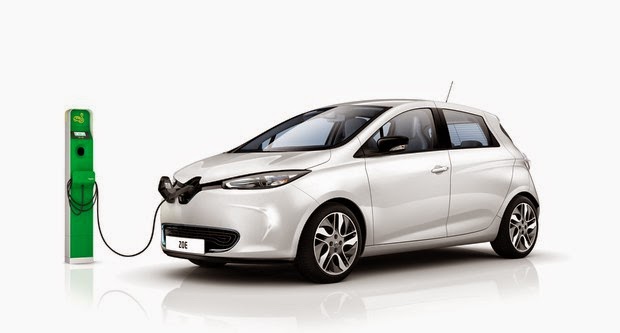How do we calculate the average greenhouse gas emissions of a vehicle fleet? The European Union has legislated a target of an average 95 grams of carbon dioxide (CO2) per kilometer by 2020. Clearly when an automaker sells an electric car, that car lowers the automakers fleet average environmental footprint. But a big question is whether that electric car should be counted as one car, or as, say, 3 cars?
It turns out that European automakers lobbied for a “supercredit” system where electric and hybrid cars have a multiplier, to make a bigger impact on the fleet average greenhouse gas emissions. Additionally, it turns out that the supercredit system is seen by European environmental activists as controversial. They position it as a means for automakers to continue selling gas guzzlers while pretending to do something positive.
Reading the coverage of this issue makes me think of the circular firing squad effect that so often derails efforts at positive change.
In this case these environmental activists are opposing an incentive for the automakers to sell more electric cars.
Is that the result they really want? To damage the project of electric vehicle adoption?
Greg Archer, a clean vehicles campaigner at Transport & Environment, told EU and industry officials: “With super credits we won’t have a 95-gram target other than on paper”. “Super-Credits is just an accounting trick to bring down the average and make the car companies look good. That makes no sense from our perspective,” explains Franziska Achterbeg, Greenpeace’s EU Transport Policy Director.
Yes, indeed, they both have a point. The actual average emissions would be higher than the 95 gram target.
However – my position is that electric car adoption must be bootstrapped because they are facing a slanted playing field. These cars are costlier, currently, partly because production volume gives the cost advantage to gasoline powered cars, partly because the technology is still evolving. To offset the higher costs means giving incentives for a time period. Over the long run electrified cars will produce enough benefits to offset the need for short-term incentives.
Jason Reakes, head of government affairs for BMW UK told The Irish Times: “Super-Credits are not a loophole, but an extremely important and effective means, without placing additional burdens on the tax-payer or on government budgets, of accelerating the introduction of electric cars as quickly as possible in order to contribute to C02 reductions and encourage the early market uptake of alternative drivetrain technologies. BMW is fully committed to launching its first fully electric vehicle (BMW i3) in the second half of this year.”
On the other hand, Volkswagon has a different idea about the supercredits. They just announced, jointly with Greenpeace, that they will meet the EU CO2 emissions reduction targets WITHOUT USING SUPERCREDITS. Does that mean VW thinks the supercredits aren’t required at all? Or is it a reflection of the fact that VW has done little with electric cars anyway, and is focused on emissions reduction using turbocharged diesel?
See:
Greens urge Brussels to slam brakes on ‘super credits’ for low-emission cars![]()
The German car manufacturer has ditched the controversial Super-Credits incentive![]()
- Highway design could decrease death and injury risk, if “we” chose smarter designs - March 28, 2015
- GM really did trademark “range anxiety”, only later to abandon that mark - March 25, 2015
- US Government releases new regulations on hydraulic fracturing, that some call “toothless” - March 20, 2015
- Tesla Motors magic pill to solve range anxiety doesn’t quite instill range confidence - March 19, 2015
- Update on Galena IL oil train – 21 cars involved, which were the supposedly safer CP1232 design - March 7, 2015
- Another oil bomb train – why are they shipping crude oil by train? – Symptoms of fossil fuel addiction - March 6, 2015
- Chevron relinquishes fracking in Romania, as part of broader pull-out from Eastern European fracking operations - February 22, 2015
- Answer anti- electric car articles with truth and pride – truth outshines all distortions - February 19, 2015
- Apple taking big risk on developing a car? Please, Apple, don’t go there! - February 16, 2015
- Toyota, Nissan, Honda working on Japanese fuel cell infrastructure for Japanese government - February 12, 2015













